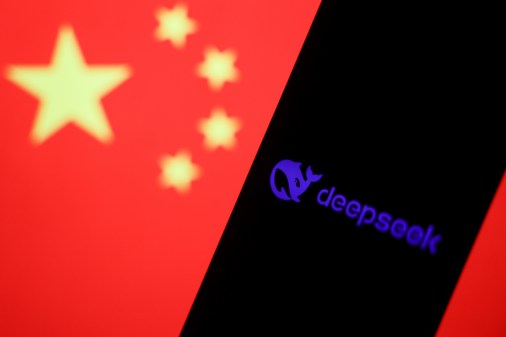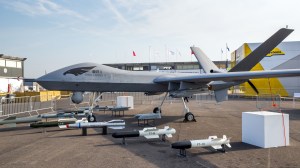DOD leaders link up with counterparts in Asia — but China declines US invite to connect

VIENTIANE, Laos — Citing a recent American arms sale to Taiwan, China rejected U.S. Secretary of Defense Lloyd Austin’s invitation to meet with his top Chinese counterpart Defense Minister Adm. Dong Jun at a high-profile summit for Asian military leaders in Laos on Wednesday, two senior defense officials confirmed late Tuesday night.
Austin is representing the United States and participating in formal exchanges with multiple international military partners at the Association of Southeast Asian Nations (ASEAN) Defence Ministers’ Meeting Plus (ADMM-Plus) on Wednesday and Thursday, marking the latest stop of his week-long trip to multiple nations across the Indo-Pacific region.
Speaking on the condition of anonymity to preview his plans ahead of the events, two senior U.S. defense officials attending in Austin’s entourage briefed reporters on the secretary’s agenda for the conference.
Leading up to the ADMM-Plus, those and other Pentagon officials suggested there was a chance Austin and Dong would directly connect on the sidelines of the event. Hope was building over the course of this week on the U.S. side for the possible linkup — particularly following President Joe Biden’s meeting with People’s Republic of China President Xi Jinping in Peru on Nov. 17.
But the night before the main ADMM-Plus events kicked off, the U.S. officials told reporters that Beijing — through an American defense attache — rebuffed Austin’s invite for the formal meet-up.
“I regret that the PRC chose not to meet here. The PRC decision is a setback for the whole region. As I’ve said consistently, the right time to meet is anytime now,” Austin told reporters in a press briefing late Wednesday after his meetings at the ADMM-Plus concluded.
U.S.-China relations are historically complex, and America’s contemporary national defense strategy identifies the Chinese military as the Pentagon’s top pacing threat. The nations’ rivalry could reach a tipping point in the near future regarding Taiwan, a self-governing island in East Asia that’s considered one of the United States’ closest partners in the region — which the PRC also claims as part of its territory.
The senior defense officials told reporters that the rationale that Beijing provided for its rejection was related to the roughly $2 billion weapons sale package the U.S. approved for Taiwan in October, consisting primarily of missile and radar systems.
However, they also noted that, in their view, it’s all part of a long-standing pattern of PRC behavior that involves turning military-to-military communications on and off — due to whatever political reason fits their purposes at the time. Examples in the recent past, they said, include the 2023 Chinese spy balloon incident and then-House Speaker Rep. Nancy Pelosi’s visit to Taiwan in 2022.
The U.S. officials additionally pointed to what they view as intensifying corruption issues across China’s government — and a hesitancy from that nation so as to not show vulnerability in such discussions with their Western counterparts — as reasoning for the PRC’s refusal to chat at the ADMM-Plus.
Despite no plans with Dong on the ground in Laos, Austin’s meeting schedule at the summit is packed with engagements. On Wednesday, the secretary joined other defense chiefs in separate bilateral meetings with New Zealand, Laos, Cambodia and Singapore.
He also participated in the U.S.-ASEAN Informal Defence Meeting with the military leaders and defense ministers from the countries in attendance.
While these events weren’t open to the press onsite, the U.S. defense officials said Tuesday that Austin planned to spotlight significant concerns about some of the regional and global security challenges in the Indo-Pacific — including the PRC’s ongoing coercion in the South China Sea and the Taiwan Strait, and North Korean troops training with Russian forces as the war in Ukraine wages on.
At this year’s ADMM-Plus, Austin is also set to unveil a new “Department of Defense Vision Statement for a Prosperous and Secure Southeast Asia.”
According to a draft summary of that document shared with reporters ahead of its release, “the United States seeks to advance the collective capacity of ASEAN and individual Southeast Asian nations by investing in” the following areas: exercises, education and training, defense industrial capacity building, defense mitigation of climate impacts, and domain awareness and defense.
Though mentions of specific technology-driving initiatives were light in that document, the U.S. indicated it’s committed to helping its Asian partners with “securing domain awareness, whether in the air, maritime, cyber space, or information environment.”
“The United States will enhance maritime capacity building programs with a focus on using commercially available technologies to expand maritime domain awareness, continuous presence, and scientific research through unmanned systems complemented by artificial intelligence and machine learning tools to maximize awareness,” according to the vision statement.
Briefing the press on Wednesday after the summit, Austin said this new vision statement will be put forward on Thursday, and it’s “focused on practical cooperation and mutual respect — and that includes training the next generation of leaders and tackling emerging challenges and deepening maritime cooperation.”
“I’m also pleased to announce the second ASEAN-U.S. maritime exercise for next year, which ASEAN member states approved earlier today, and I look forward to meeting with key allies and partners,” Austin told reporters.






